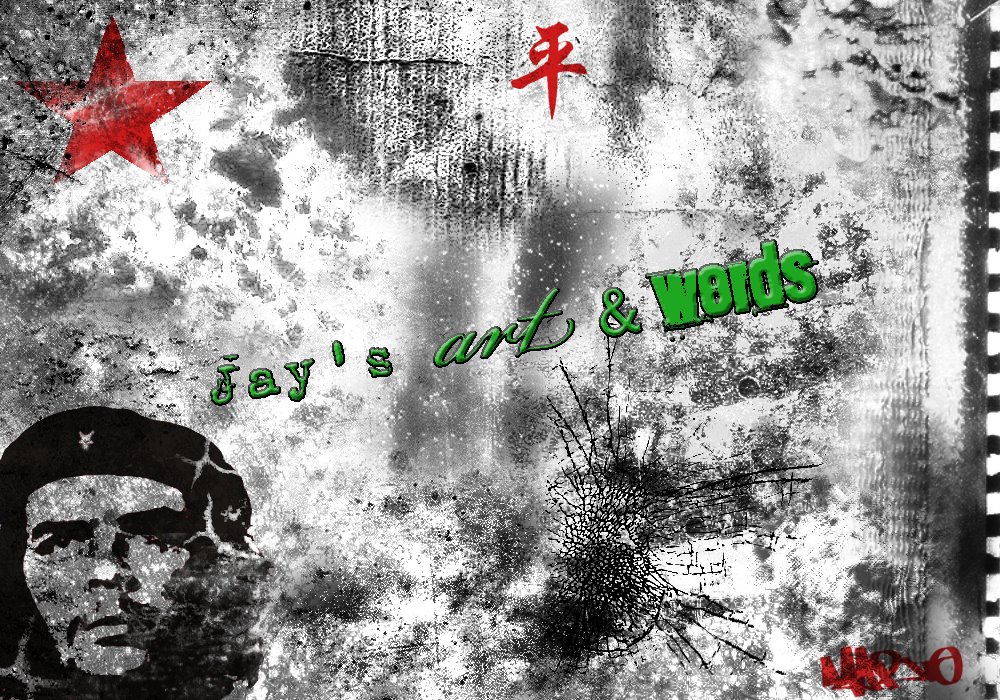Shikishima no Yamato-gokoro wo hito towaba, asahi ni niou yamazakura bana
"If someone asks about the Yamato spirit [Spirit of Old/True Japan] of Shikishima [a poetic name for Japan] — it is the flowers of yamazakura [mountain cherry blossom ] that are fragrant in the Asahi [rising sun]."Motoori Norinaga
The concept behind the Kamikaze pilots dates centuries back to Feudal Japan and the Bushido, or way of the Samurai, where warriors would rather take their own lives than suffer defeat or surrender to the enemy.
The idea of honour has been an important concept of Japanese lifestyle and warfare up until very recently, with the sudden modernization of Japanese culture. Nevertheless, the code of honour is still carried forward into Yakuza tradition even to this day and is often romanticized in Japanese crime cinema.
One could say that the Kamikaze tactics employed during World War II effectively killed off the traditional Japanese honour codes as the military and the civilians recognized the economic costs, but more importantly the human cost, as hundreds of Japanese families received the news that their sons and husbands had died, yet for what cost?
 aforementioned site.
aforementioned site.Yukio Araki was only seventeen years old when he crashed his plane into an American ship on May 27th, 1945. Before his fateful voyage, he wrote the following letter to his parents.
He then wrote the following letter to his brother.Dear Father and Mother,
I trust you and my brothers are doing well recently.
It has been decided that at last I will go to take part in the Battle of Okinawa as a member of the special attack forces. I am deeply moved. I only look forward to sinking a ship with a single blow.
When I look back, I apologize for not being devoted to you in any way for some ten years to this day.
Through teaching by various senior officers after I entered the Army, I now devote myself to my country as a special attack force member. Please find pleasure in your desire for my loyalty to the emperor and devotion to parents.
I have no regrets. I just go forward on my path.
I ask that you teach my three younger brothers so they can serve our country as noble airmen. I sincerely hope you take good care of yourselves and make strenuous efforts on the home front.
Please give my regards to all my relatives and to everyone in the neighborhood association.Sayonara,
Yukio Araki
72nd Shinbu Squadron
Dear Older Brother,
I want to give my thanks to you for taking care of me for a long time. I go to die with no regrets and will earnestly make a hit.
I apologize that up to now I have not been able to repay you in any way for your kindness to me. Please be glad that this dispatch to the front will be my repayment to you.
Today as the war situation is becoming more and more intense, it is necessary for me to crash my 17-year-old body into the enemy. This year you also will enter the military, and I sincerely expect that you will exert yourself with hard work and devoted military service.
I have something to ask of you and our parents. I especially would like that you give a good education to our three younger brothers and that in the future they follow after me as fine Japanese men.
Let's meet under Kudan's flowers.
Yukio
Reading these letters gives us great insight into the way the mind of a Kamikaze pilot worked. For centuries, the Japanese people had been instilled with great pride in the sense of honour that came with their culture. Yet there was also the sense of a superior tactic taking place; the pilots in their small fighter planes were able to take down a whole warship with just one strike (as was seen with the USS Bunker Hill), this was in some way seen as proof of the divine superiority of Japan's military.
The American viewpoint of these attacks understandably demonises these attacks. Many veteran survivors of Kamikaze attacks often state that these attacks had a certain personal connotation to them; these planes weren't just the "enemy" anymore, they were something more: an enemy who would stop at nothing to ensure the death of their adversary. Understandably, at this point one would ask "why do they want ME dead?".
Nevertheless, a small minority of veterans are able to push the horrifying images aside and recognize the fact that these pilots were indeed exceptionally brave, and were able to respect them for that.
The Kamikaze undoubtedly sped up Japan's defeat in '45, as they were losing planes and pilots through these attacks. Nevertheless, subconsciously the Japanese mourned the death of a way of life: the code of honour that had seeped into mainstream society over the centuries. As well as destroying battleships, these pilots marked the end of an era in Japanese culture.
